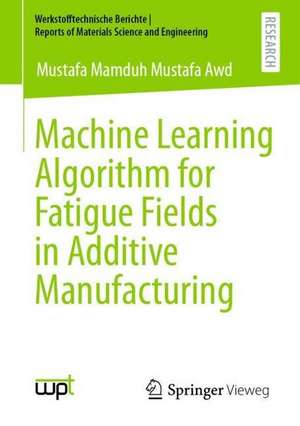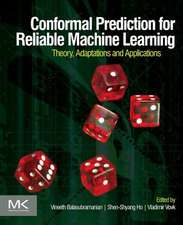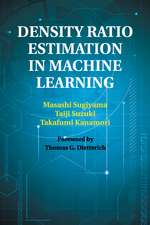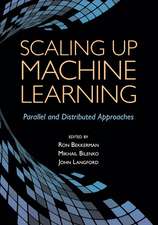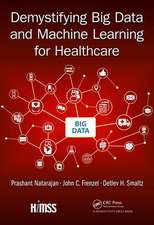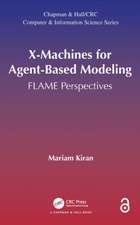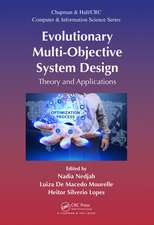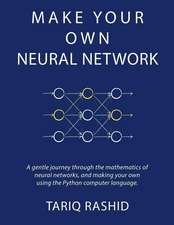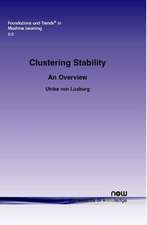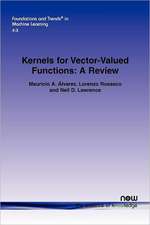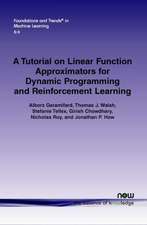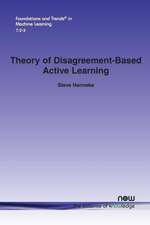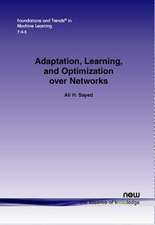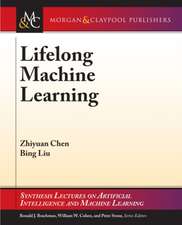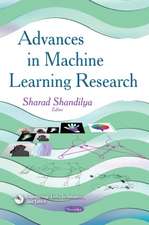Machine Learning Algorithm for Fatigue Fields in Additive Manufacturing: Werkstofftechnische Berichte │ Reports of Materials Science and Engineering
Autor Mustafa Mamduh Mustafa Awden Limba Engleză Paperback – 2 ian 2023
Preț: 587.56 lei
Preț vechi: 734.44 lei
-20% Nou
Puncte Express: 881
Preț estimativ în valută:
112.44€ • 122.10$ • 94.45£
112.44€ • 122.10$ • 94.45£
Carte tipărită la comandă
Livrare economică 22 aprilie-06 mai
Preluare comenzi: 021 569.72.76
Specificații
ISBN-13: 9783658402365
ISBN-10: 3658402369
Pagini: 255
Ilustrații: XXXVIII, 255 p. 143 illus.
Dimensiuni: 148 x 210 mm
Greutate: 0.39 kg
Ediția:1st ed. 2022
Editura: Springer Fachmedien Wiesbaden
Colecția Springer Vieweg
Seria Werkstofftechnische Berichte │ Reports of Materials Science and Engineering
Locul publicării:Wiesbaden, Germany
ISBN-10: 3658402369
Pagini: 255
Ilustrații: XXXVIII, 255 p. 143 illus.
Dimensiuni: 148 x 210 mm
Greutate: 0.39 kg
Ediția:1st ed. 2022
Editura: Springer Fachmedien Wiesbaden
Colecția Springer Vieweg
Seria Werkstofftechnische Berichte │ Reports of Materials Science and Engineering
Locul publicării:Wiesbaden, Germany
Cuprins
Introduction and objectives.- Background on process-property relationship.- Training and testing data.- Estimation of lifetime trends based on FEM.- Bayesian inferences of fatigue-related influences.- Summary and outlook.- References.
Notă biografică
Mustafa Mamduh Mustafa Awd heads the Workgroup Modeling and Simulation at the Chair of Materials Test Engineering (WPT). He deals with the problem of multiscale numerical analysis of the effect of microstructural heterogeneities on fatigue strength by adapting quantum mechanical methods and data-driven algorithms alongside numerical optimization. The developed general-purpose models help increase the structural stability and production efficiency of modern manufacturing processes.
Textul de pe ultima copertă
Fatigue failure of structures used in transportation, industry, medical equipment, and electronic components needs to build a link between cutting-edge experimental characterization and probabilistically grounded numerical and artificially intelligent tools. The physics involved in this process chain is computationally prohibitive to comprehend using traditional computation methods. Using machine learning and Bayesian statistics, a defect-correlated estimate of fatigue strength was developed. Fatigue, which is a random variable, is studied in a Bayesian-based machine learning algorithm. The stress-life model was used based on the compatibility condition of life and load distributions. The defect-correlated assessment of fatigue strength was established using the proposed machine learning and Bayesian statistics algorithms. It enabled the mapping of structural and process-induced fatigue characteristics into a geometry-independent load density chart across a wide range of fatigue regimes.
About the author
Mustafa Mamduh Mustafa Awd heads the Workgroup Modeling and Simulation at the Chair of Materials Test Engineering (WPT). He deals with the problem of multiscale numerical analysis of the effect of microstructural heterogeneities on fatigue strength by adapting quantum mechanical methods and data-driven algorithms alongside numerical optimization. The developed general-purpose models help increase the structural stability and production efficiency of modern manufacturing processes.
Mustafa Mamduh Mustafa Awd heads the Workgroup Modeling and Simulation at the Chair of Materials Test Engineering (WPT). He deals with the problem of multiscale numerical analysis of the effect of microstructural heterogeneities on fatigue strength by adapting quantum mechanical methods and data-driven algorithms alongside numerical optimization. The developed general-purpose models help increase the structural stability and production efficiency of modern manufacturing processes.
